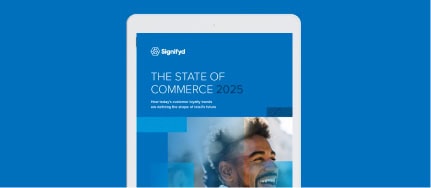“As a small business that makes a very cool product we have been targeted,” says Jay Sung. Leaning into his listener for emphasis Jay sits in the same San Francisco headquarters where 2 1/2 years ago he co-founded a manufacturing company that makes high-end EcoReco personal electric vehicles. But his scooters, which he markets as “the practical last mile solution in urban cities,” to his chagrin, also have a very high resale value. Letting out a sigh, he describes the chargeback that finally broke him.
“We had done everything: we called the customer, we called the address. We made sure all the addresses – shipping, mailing – were the same. We even required a signature upon delivery. And everything checked out,” says Jay , whose $3 to $5 million dollar a year company sells 25% of its environmentally-friendly scooters from its website.
But despite following his credit card processor’s instructions to the letter he still couldn’t be made whole, he says.
“They just say ‘sorry, it’s your risk. You accept on-line payments …You’re not going to get the money.’ At that point I felt like I just couldn’t do this any more. Signifyd was just on our radar and we decided to try it out.”
Signifyd, an ecommerce fraud protection company that now guarantees each of EcoReco’s transactions, sees to it that Sung no longer suffers the $5,000-to-$10,000-a-quarter in losses he used to or the headaches that went with it. He also now sleeps better, he says.
“Online carding is growing because it’s really one of the last refuges for fraudsters,” says Seth Ruden, a certified fraud examiner and certified anti-money laundering specialist who consults for ACI Worldwide, a payment solutions company based in Naples, Florida. “Many retailers are still without fraud detection solutions and it behooves them to ensure they have technology in place to review orders because if fraudsters discover they don’t have fraud protection or detection solutions and their goods can be resold or refunded, then those merchants may have a larger share of chargebacks than their peers.”
That was Jay’s problem. His personal electric vehicles were so good that fraudsters were stealing them. They used VPNs to disguise their true addresses, he says. Perhaps that’s because anyone can use an EcoReco scooter, or resell a stolen one. And the most stolen products are the ones that can be converted quickly to cash, says ACI’s Ruden. Jay’s ads show suited middle-aged men EcoScootering to their office and 20-something hipsters making deliveries with them. “It’s the last mile in a commute, a way to reduce gasoline consumption and traffic congestion,” says Jay.
A folded EcoReco personal electric vehicle is three feet by one foot by a half-foot and charges on a wall outlet to to full strength in four and a half hours; to 80% strength in two hours. The perfect steal-able product.
“Once you fold it you can store it anywhere,” he says.
Jay’s energy efficient e-scooter is not just his business, but also his way of making the world a better place, he says.
“The current norm that everyone is used to – to commute to work, a lot of time driving alone – is not economical – there are energy consumption, emission, traffic, parking issues, and you also create the isolation you get (by putting people) in a small metal box,” says Jay.
Nearly half of all online victims of online fraud this year will be businesses like EcoReco that make less than $5 million, according to Cybersource, an ecommerce credit card payment system management company. And merchants like Jay, who sell physical products like his 2000 MPGe lithium battery-powered personal electric vehicle , will make up 61% of those targeted, the report says. (EcoReco also sells a 34-pound scooter with a higher grade battery and longer range.)
The most common solution for online retailers losing money is to hire a fraud detection company that will provide them with fraud scoring. The difference with Signifyd is that it guarantees every transaction it approves. After evaluating each prospective customer’s purchase and payment credentials it leverages real-time machine learning to incorporate external data and compare those credentials to Signifyd’s database of thousands of merchants. With superior data and specialized risk analysts Signifyd can instantaneously approve and guarantee more orders than merchants can by themselves, says Raj Ramanand, co-founder & CEO of the San Jose based fraud protection company.
“Nobody at EcoReco actually has to do anything,” says Ramanand. “We’re integrated with them at the ecommerce platform level. Where you use a shopping cart to buy their scooters is where we get our data directly.”
And what if Signifyd doesn’t approve the transaction? Then they also will not guarantee it and the merchant shouldn’t ship that order. For a merchant, this takes the guesswork out of assessing whether a good sale might be rejected in error, a practice projected to cost online companies $8.6 billion in sales this year, according to a study by Business Insider. The same study says ecommerce companies can expect to lose 1.47% of their annual revenue to online fraudsters, up from 0.51% in 2013.
“Fraud always migrates to those who are less equipped to manage it,” says ACI’s Ruden. “The pro-active retailer embraces a layered approach to fighting fraud beginning at the checkout with a type of encoding language readable by consumers and computers called “3D Secure,” he says. “(3D Secure) is not bulletproof but it’s a step in the right direction.”
Rudin says the retailer’s fraud solution will then do a risk-assessment using computer analysis and integrate demographic information into his decision as to whether or not to sell to a particular customer. Finally, a retailer should set a target as to how much of a loss is acceptable over a set period of time.
But with Signifyd, EcoReco’s Jay says he now saves three to five minutes per transaction, time he can spend marketing his product instead of checking on a buyer’s email and credit history.
He also can interact with the evaluation team on rejected orders so that he can reach out to the customer and give them a chance to provide additional information or documentation. In this way, both EcoReco and the customer have a second chance to “establish confidence in the order’s legitimacy,” Jays says.
“Since our orders are higher in dollar value and lower in volume, this means Signifyd enables us to keep a rock-bottom false positive rate, as our legitimate customers are usually willing to go a little further to get the order processed.
“When the chargeback happens you have to think through the old profile and print out the form and write a story, deal with the credit card company and that’s not fun, right?”
“And it’s very frustrating,” Jay says. “Our business is not to learn the financial system and not to learn how to deal with the bank.”







